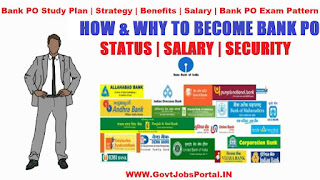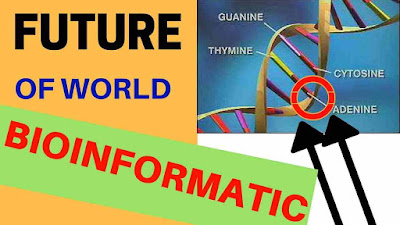GETTING READY FOR
UPCOMING CAREER OPPORTUNITIES IN BANKS
How to Prepare for
Banking Careers in India
There
are few prestigious careers in the country which are possible with a
qualification as simple as graduation. One is Civil Services for which
the process is conducted by the Union Public Service Commission (UPSC) every
year. The other is a career in government-owned banks which may be
possible by qualifying in the Bank written examination conducted by the Institute
of Banking Personnel Selection (IBPS) and SBI. This employment article is
about the latter. Banks in India, particularly the government-owned (Public
Sector) banks provide an excellent career option for young people, so
there is no surprise that more and more young people are drawn towards them for
a meaningful and long-lasting career. When a small survey was
conducted amongst jobseekers to understand why they are keen to join a
government bank, the following points were made most commonly:
- The eligibility norms are simple
- The selection process is completely transparent, democratic
and fair
- The selection process is completed in a time bound manner
- The service conditions are well defined with pay, allowances
and other benefits to the employees
- There are good opportunities for promotion
- In our social structure working in a bank is considered much
prestigious
- Opportunities are available across the country
Few
other positive observations were also made. But whatever has been said above
should be enough to consider banking as a career for those who possess
the required aptitude.
The
way banks have expanded their network in the country has few parallels in the
world. In July 1969, 14 major banks of the country were nationalized.
The next phase of nationalization happened in 1980 when 6 more banks were
nationalized. Banks were asked to play a major role in socio-economic
development of our nation. A large number of bank branches were opened in
villages and in other far-off areas which have been hitherto unrepresented in
banking facilities. After the merger of Dena Bank and Vijaya Bank in Bank of
Baroda, now there are 18 nationalized banks.
Regional
Rural Banks
came into existence through an ordinance issued in the year 1975. This
ordinance was replaced by Regional Rural Banks Act in 1976. After
reorganization now there are about 55 RRBs in the country.
Since
a large number of people work in these (public sector/regional rural) banks,
there is a regular turnover of employees. A number of employees superannuate,
many get promoted to higher positions and few moves to other organizations. To
fill the gap so caused, these banks have to recruit fresh people periodically
and therein lies the opportunity for our young friends who want to have a
career in banking.
Basically, banks have three levels of employment for
freshers-subordinate staff, clerks, and officers. There are very
limited vacancies for subordinates' position and selection doesn't take place
on all India basis. So, in this article, we're going to cover the selection
process for general banking officers and clerks only. A major segment of
these employees in banks, directly attends to customer requirements. A smaller section
is involved in back-office activities, general or remote administration etc.
There
are separate examinations for RRBs and PSBs under the aegis of IBPS.
Again the selection process for both clerks and officers is segregated
for both set of the above banks. Please note that the selection test for State Bank
of India is conducted separately.
In
RRBs clerical positions come under group 'B' with the nomenclature of
'office assistant multi-purpose'. The eligibility criteria for both clerks
and officers is a bachelor's degree in any discipline and proficiency in
local language as prescribed by the participating RRB/s. Working knowledge of the computer is desirable. In the case of officers position in RRBs, those having a
degree in Agriculture/ Pisciculture/ Agricultural marketing and
cooperation/Animal husbandry/ Forestry/Veterinary science/
Horticulture/Agricultural marketing/ Agricultural engineering/ Accountancy/
Law/Management or information technology.
The
recruitment examination is divided into preliminary and main examination
both for clerks and officers. The preliminary examination for clerks have questions
from reasoning and numerical ability. For officers, it is reasoning and
quantitative aptitude. In all 80 questions are to be attempted in composite
time of 45 minutes.
The
main examination for clerks contain questions relating to reasoning, numerical
ability, general awareness, English and Hindi language and computer knowledge.
For officers, the section of numerical ability is replaced by quantitative
aptitude.
For
public sector banks the preliminary examination for clerical positions is
conducted with questions in English language, numerical ability, and
reasoning ability and the main examination consists of general/ financial
awareness, general English, reasoning ability and computer aptitude. The number of
questions in preliminary examination is 100 with a time of 1 hour. In the main
examination, 190 questions are to be answered in 160 minutes.
For
officers posts in public sector banks the preliminary examination has three
sections of English language, quantitative aptitude and reasoning ability.
The main examination is in reasoning and computer aptitude, general/
economy/ banking awareness, English language, data analysis and interpretation.
Tests
may have a similar name but structure and difficulty level of the question may vary
depending on the position for which the exam is conducted and whether it is a
preliminary or main examination.
Only
those who qualify in the preliminary examination are intimated to appear in the
main examination. The candidate has to secure minimum marks in each segment.
The cumulative score has to be higher to stand in the merit list. In the case of
officers, for successful candidates in the main examination, there is an
interview. For clerical positions, there is no interview, as per government
guidelines issued about two years ago.
Test details and strategy for preparation
Reasoning: Reasoning questions are
mainly about common sense and logical thinking. The idea is to test candidates'
analytical and logical reasoning skills. You will be asked to interpret
statements, data, and information to arrive at conclusions. Here your conceptual
and theoretical knowledge has no role to play. The thinking has to concentrate
on the question only. You should make sure that your biases or personal beliefs
don't come in between and are kept aside. Questions relating to reasoning are
in different forms such as arrangements, critical reasoning, visual reasoning,
data sufficiency/insufficiency, syllogism, odd man out, completing the series.
Numerical ability: How to make sense of
numbers is the key theme in the questions pertaining to numerical ability. You
may expect simple arithmetical problems and complicated calculations under this
section. Areas of expected questions are simplification; average; percentage,
time, speed and distance, number series; profit and loss, simple and compound
interest; ratio and proportion, time and work etc. To prepare for this section
you have to revisit your maths syllabus of matric i.e. 10th standard. Recall
the formulae and clarify your concepts of BODMAS etc. Strong foundation in
mathematics will be of immense help here. With some efforts you can score very
well in this section, increasing your overall score which is crucial to put you
in the merit list.
Quantitative aptitude: Quantitative aptitude
covers numerical ability and focuses upon solving quantitative problems. Based
on the given data/inputs you'll be required to find the correct answer. There
may be a few questions for which sufficient data wouldn't be there to answer.
Once you're sure about this, you should choose the option conveying this. The
syllabus includes the topics narrated under numerical ability above. Add to
this questions on topics like partnerships, boats and streams, volume and
surface area, price after discount, age, mixture, train etc. Expect more of
descriptive problems here. Try to familiarize yourself with all sorts of
questions expected in this section and learn to solve these methodically. You
may have a good understanding of theories behind the questions but more important
is to apply those theories in solving lot of questions so that you get a knack
of these.
General awareness: This section intends to
test your knowledge about important facts and milestones about India and the
world. Questions may relate to History (important dates/ milestones etc.),
Geography (countries, capitals, cities, mountains, rivers etc.), Science
(inventions, inventors, definitions etc.), Literature (books/authors), Art,
Entertainment (film/theatre etc.), Sports (tournaments, championships, records,
winners, venues etc.), important personalities, important events, international
bodies, acronyms and other topics. Like it is always said general awareness has
no boundaries and thus it appears to be difficult to be fully prepared for
this. Still it is advisable to make your preparation as extensive as possible.
To do well in this section you may build your own reference source in the form of a
diary.
Financial awareness: Banking and finance are
closely related. This section will have questions related to the national and
global economy, financial institutions, corporate world, stock market etc. To
prepare for this section you have to focus on concepts as well as financial
data. For example, you need to know what is inflation and what has been the
inflation rate recently. You may refer to one or more financial newspaper to
prepare well.
Banking awareness: This particular section
will have questions from banking world relating to different types of banks
(public, private, cooperative, payment, development, small), banking regulator,
basic /generic banking products and services, the purpose of bank nationalization,
bank mergers, issues, and challenges before banks, government schemes
implemented through banks, Micro, Small and Medium Enterprises, bancassurance,
monetary policy etc.Government policy announcements, financial inclusion, financial
literacy, role of NABARD/SIDBI etc. Visit the Reserve Bank of India website to
obtain valuable input about most of the above.
English / Hindi language: There are many
similarities in the pattern of questions in language papers. One set of
questions may be based on comprehension passage. You have to read the passage
carefully and then answer the questions according to what is stated in the
passage which may be different from general opinion and observations. Some of
the questions may be in negative form. (e.g. according to the passage which is
not the right solution for _____. In sentence based questions a sentence will
be divided in four parts and you'll be required to find if there is any mistake
in a particular part. If there are no mistakes, you've to mark your answer
accordingly. Where jumbled sentences of a paragraph are given the candidate has
to find the correct order. In another type of question, a statement will be made
and you have to choose from options the statement which matches with the idea.
Questions, where you've to provide correct antonym/synonym, may also be there
along with questions relating to idioms and phrases. Fill in the blanks from
given options may also need to be attempted.
For
officers, in the main examination there is a section of Subjective English of
25 marks in which there would be two questions - one of essay writing and other
of letter writing. It would be better if you choose a few themes to practice for
this section. Review the letter and essay written by you to see where
improvements are needed. Also, show these a couple of other people who can give
you constructive feedback. Go through sample essays and letters in a good book
on General English.
Start
reading national newspapers, magazines, if you're not already in habit of this.
There will be some new words. Find out their meaning and see how these words
have been used. You may also explore the synonyms and antonyms of these words. Your
mind should also be on sentence formation and on the sequencing of the statements
in case of long sentences.
Increasing
your knowledge of English by learning new words will help you. Every day choose
5-10 unfamiliar words from a dictionary or other sources, write their meanings
and refer to these whenever you get time. In this way, you may learn a lot many
new words.
Computer knowledge: This test has been
added a few years ago. Today's banking widely uses computer applications and
programs. As such candidates joining banks are expected to have at least some
affinity with computers. Questions under this section may relate to hardware
basics (input, output, storage devices ), Windows program (MS Office etc.)
features, software and desktop applications, keyboard shortcuts, internet,
intranet, networking, database, cyber security etc.
You
may have practical knowledge of computers and the internet which of course would
help. However, you need to make additional preparation for which you should
refer to the glossary of Windows, internet and computer applications etc. Learn
about shortcut keys. Also, it's advisable to go through Help/Support page of
Windows
This
computer test is not to check your technical expertise, rather your awareness
about basic computer usage is judged.
Data Interpretation: In this section usually
a situation full of data is given. The candidate is required to read the
situation closely and then answer all the questions related to it. For one
situation there may be 2 to 10 questions. Here the biggest challenge is to read
and understand the situation right. Then the possibility of giving correct
answer increases. The situation may be in the form of text, tables, pie charts, bar
graphs, line graphs etc. So you should be ready to see questions from multiple
forms of situations.











